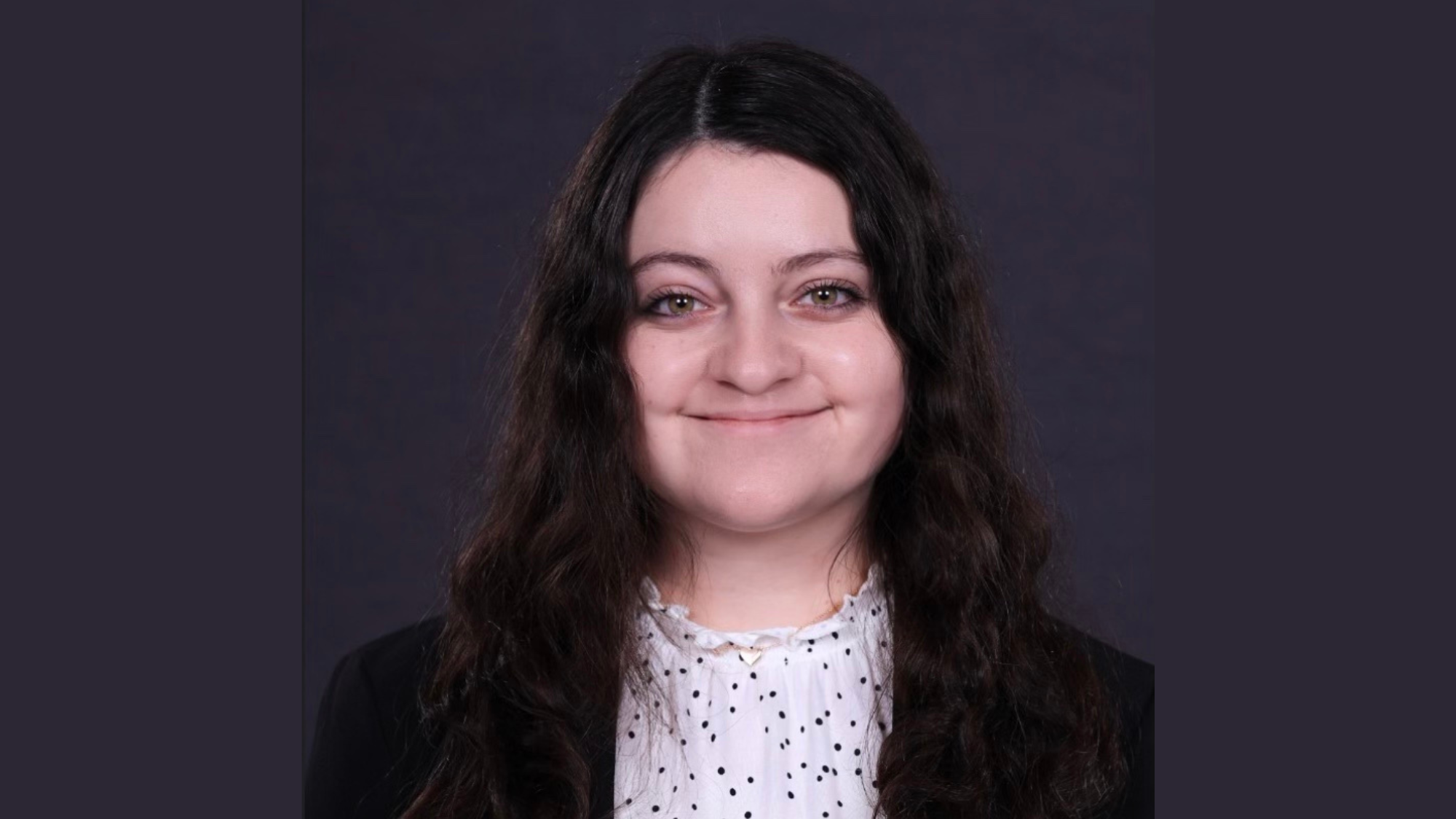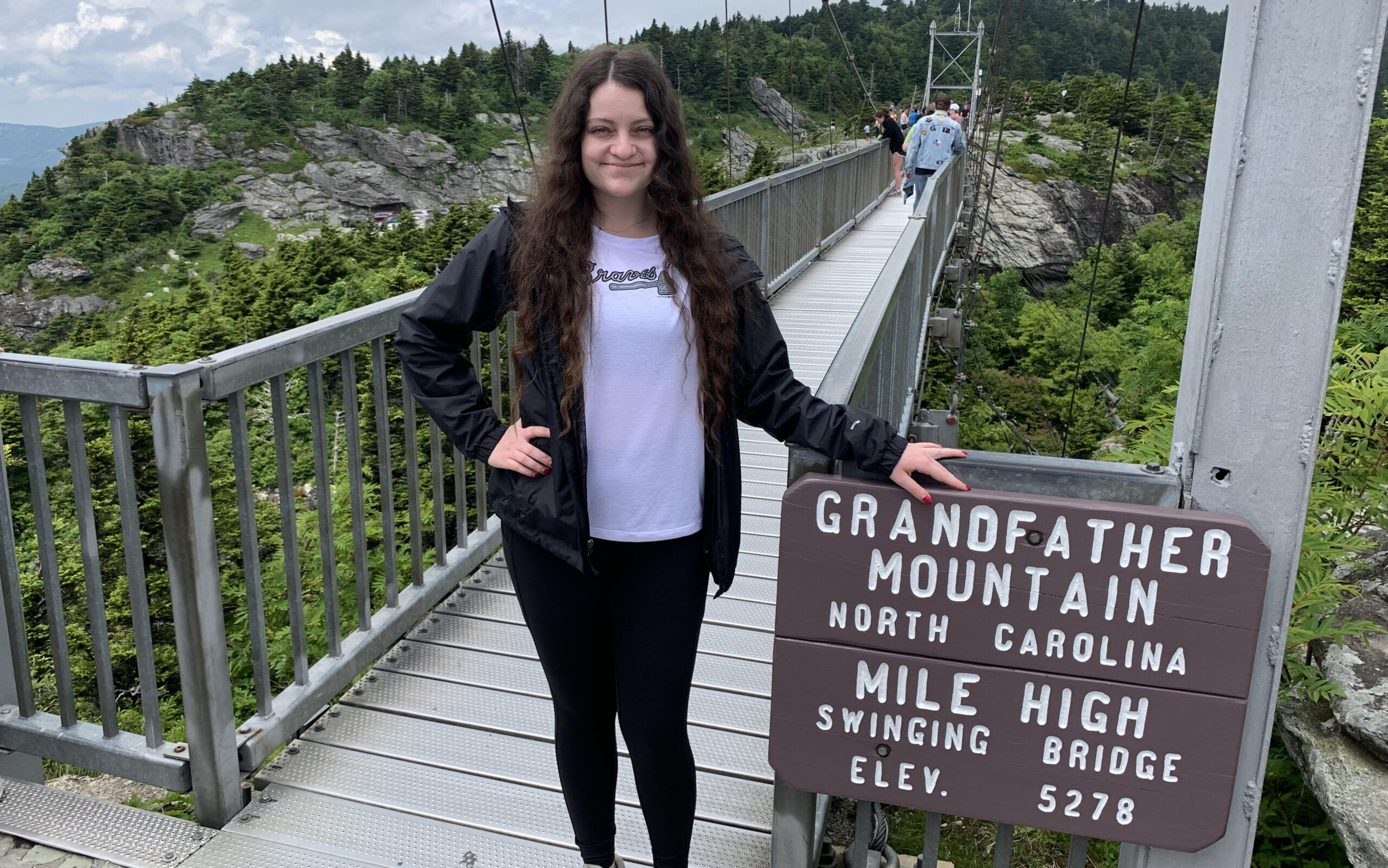Researcher Spotlight – Lily Raye

2022-23 Global Change Fellow
PhD Student, Department of Marine, Earth, and Atmospheric Sciences
Advisor: Dr. Kathie Dello
Every year the Southeast Climate Adaptation Science Center funds a multi-disciplinary cohort of Global Change Fellows representing colleges across NC State University. Here are some highlights about 2022-23 Fellow, Lily Raye and the applied research she’s conducting.
About You
What do you study?
My research focuses on extreme heat in North Carolina and its associated societal impacts. Alongside Dr. Dello, I work with the Carolinas Collaborative on Climate, Health, and Equity (C3HE) NOAA CAP/RISA cohort on a variety of climate change-related issues. Currently, I am working to identify and visualize heat risk metrics throughout the state, including daily maximum record temperatures and climatological averages. I will calculate the 95th percentile maximum temperatures for several NC locations and then overlay those with calculated heat impact levels. I will also work with several communities, especially in Eastern North Carolina, to share this information with them and ensure equitable climate preparedness across the state. My overall research goal is to identify extreme heat “hot spots” in the Carolinas and assess how different communities are affected by climate hazards.
What (or who) influenced you to go into this field of study?
From a young age, I was fascinated with weather and the atmosphere. Growing up in North Texas, I experienced my fair share of severe weather and extreme heat waves. I never really comprehended how the atmosphere operated, but I strove to understand why and how weather impacted different groups of people. In high school, I shadowed several meteorologists in and around Dallas and fell in love with not just the science of weather, but also its social aspect. My AP Statistics teacher was a leading influence in my decision to study meteorology. As I was about to graduate, he assured me I would thrive in a career related to statistics – and so I chose to pursue meteorology at the University of Oklahoma.
Throughout my undergraduate experience, I had the privilege of learning from some of the best scientists and meteorologists in the country. In 2019, I shifted my future career goals when a tornado outbreak occurred near my dad’s childhood school in Lee County, Alabama. Dozens of civilians, mostly in mobile homes, sadly passed away. I remember asking myself, “Why were those individuals hit the hardest?” Did they not have access to warnings? Or was this the result of a larger systemic issue? From that point on, I decided I wanted to study the societal impacts of climate change, specifically how underserved communities are impacted. This led me to the C3HE group here at NC State, where I hope to do just that.
What are three words your friends would use to describe you?
My friends would likely say that I am hardworking, passionate, and empathetic. I love studying climate change and the physical science behind it, but I also love learning about the people it affects. I try to merge my childlike fascination with the weather with my desire to serve humanity and create a sustainable future for us all.
About Your Research

Who will benefit from your research?
First and foremost, I hope that my research will benefit frontline communities in the Carolinas. As I continue my preliminary data analysis, I will share my findings with entities such as the State Climate Office and the NC Department of Health and Human Services. Ultimately, I hope my research will help communities in the Carolinas and elsewhere understand their unique vulnerabilities to climate change.
How can your research be used to inform management decisions?
By identifying hotspots of extreme heat in the Carolinas, I hope to help communities and policymakers understand which areas are most vulnerable to this hazard. Also, I plan to work with the Department of Health and the State Climate Office to calculate different levels of heat risk based on physiological factors and identify temperature ranges associated with each level. Ultimately, my goal is to utilize these findings to develop extreme heat mitigation plans for the region. I anticipate working with emergency managers and community leaders to create these plans that would prepare their citizens for extreme heat events in the future.
How would you describe your research to a 3rd grader?
Our planet is facing a pressing issue. Climate change is causing dangerous conditions everywhere on the globe. One of these issues is extreme heat. As temperatures continue to rise, we are seeing dangerous heat. This is a huge concern because some regions and groups of people are hit harder than others. Extreme heat is harmful to our health and environment as a whole. We need to find out why and where heat impacts the world, and what we can do about it.
About Your Global Change Fellows Experience
How do you expect the SE CASC Global Change Fellows Program to impact you and your work?
The Global Change Fellows program has offered several unique opportunities so far, and I only anticipate this to continue throughout my graduate career. I am so grateful to be involved in a multidisciplinary cohort of incredible scientists, and I already learned so much from my peers. Through this program, I developed several relationships with climate adaptation professionals whose expertise has inspired me to shape my research project around the societal impacts of climate change. Currently, I am working with my peers to organize a seminar dedicated to risk communication, a topic I am extremely passionate about. I hope that by connecting with several experts in this field, I can use my graduate research to truly make a difference.
What has been the most rewarding part or your favorite part of being a SE CASC Global Change Fellow?
My favorite part of being a SE CASC Global Change Fellow has undoubtedly been the relationships I’ve made with other fellows, scientists, and climate professionals. Additionally, I really enjoyed our field intensive last summer because it gave me the unique opportunity to learn from my peers with diverse academic and professional backgrounds. Even though we came from different schools and had different majors, we were all focused on tackling the pressing issue of climate change. It made me really excited to begin my graduate career alongside a multidisciplinary cohort of fellow scientists.
What advice would you give to an incoming Global Change Fellow to get the most out of their experience?
My advice would be to take advantage of every opportunity that comes your way! Throughout your time as a Fellow, you’ll get to meet guest speakers in class and attend seminars given by professionals from various disciplines. Don’t be afraid to ask questions, and definitely reach out if their work interests you. They will be happy to help. Above all, make the most of your time as a Fellow and enjoy it! This is truly a unique experience, and it will benefit you in many ways, through graduate school and beyond.
- Categories:
